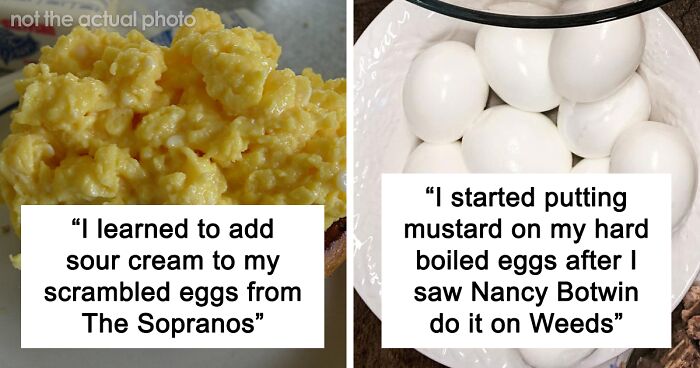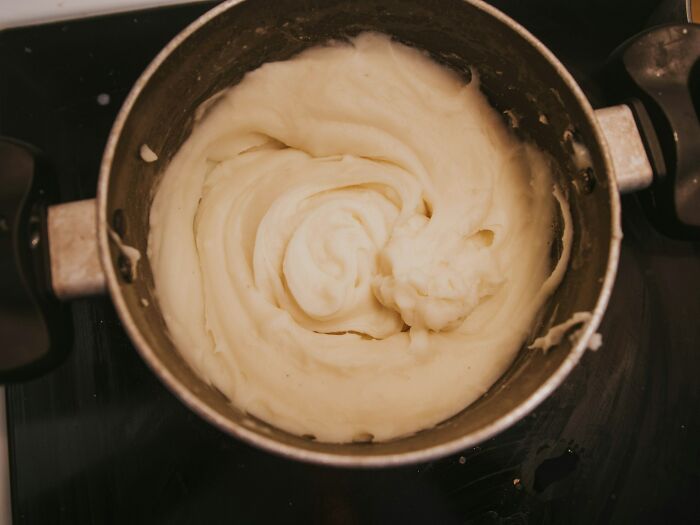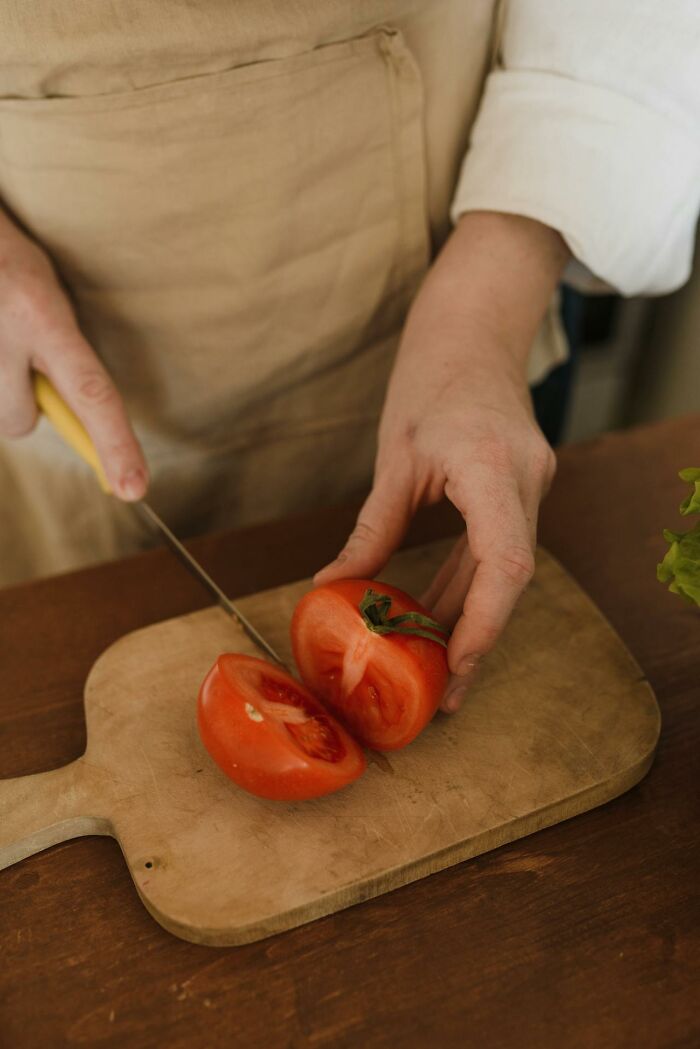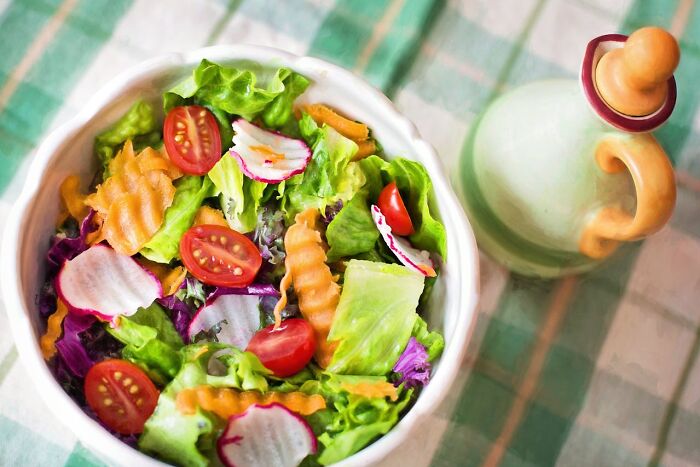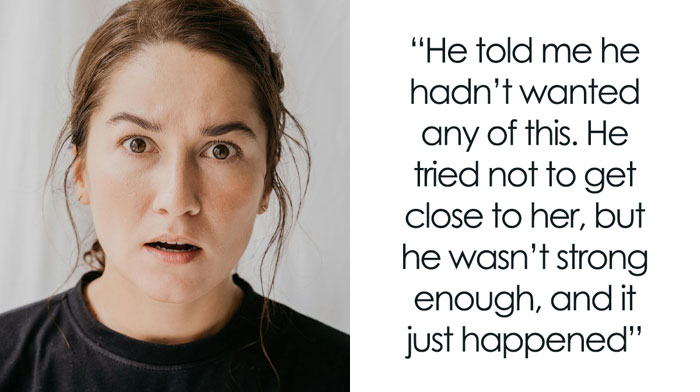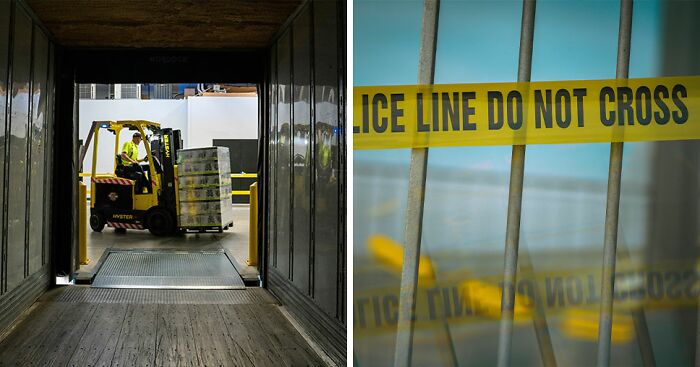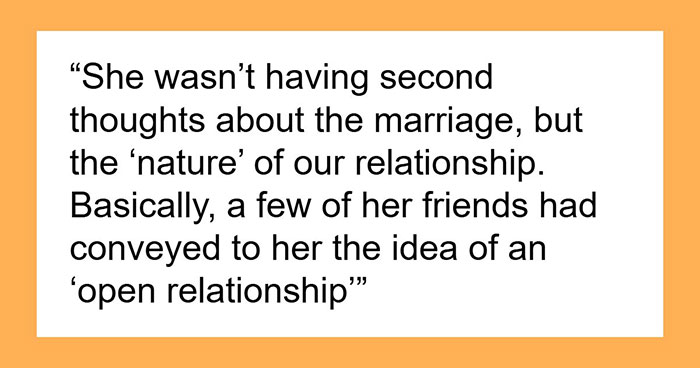Some people are so good at certain things, it might look like they were born knowing how to do them. But more times than not, it’s a result of hard work, countless instances of trial and error, and maybe using a few tips they’ve picked up somewhere or from someone.
Cooking is no exception. Avid users of pots, pans, and saucers know that it takes hours to master certain recipes or techniques, but certain tips and tricks can boost the process of taking one’s kitchen game to the next level. And while some of them browse recipe books or blogs to look for information, others pick them up by accident; for instance, while watching TV.
Members of the ‘Cooking’ subreddit recently discussed learning things from shows or movies after one of them started a thread about it. So, if you’re curious about where exactly they got the tips from, or what the tips themselves were, scroll down to find their answers on the list below, and get cooking!
Below you will also find Bored Panda’s interview with the mastermind behind the documentary food podcast ‘Lecker’, Lucy Dearlove, who was kind enough to answer a few of our questions regarding all things food.
This post may include affiliate links.
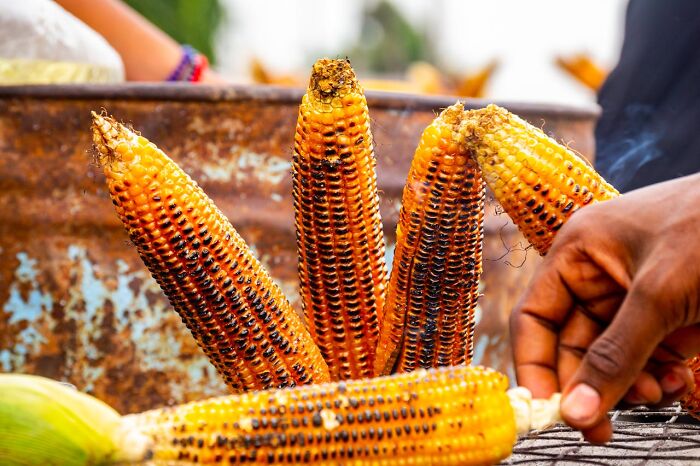 In War Games (Matthew Broderick, 1983) there is a scene where the family is sitting down to dinner. They butter their bread and then roll the ear of corn on the bread to butter it. My brain sort of slipped a cog and I was like why didn’t I think of that?!?!?!
In War Games (Matthew Broderick, 1983) there is a scene where the family is sitting down to dinner. They butter their bread and then roll the ear of corn on the bread to butter it. My brain sort of slipped a cog and I was like why didn’t I think of that?!?!?!
I'm just shocked anyone remembers War Games. The funny looks I get when I get in a fight with a computer and say "Shall we play a game" are real
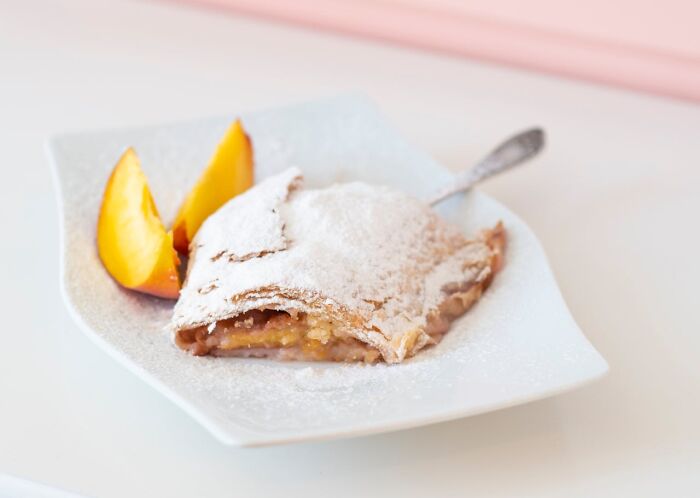 I was watching a documentary many years ago, and they were interviewing a sister(?) of a murderer/criminal/missing person -I forget. While being interviewed, she was making little turnover things. Half of a peeled peach with a little brown sugar and spices where the pit used to be. Plopped onto a bit of pie pastry, cut out larger than the peach, gathered together like a beggars purse, brushed with butter or egg wash and baked.
I've made these for decades, my kids, and then grandkids love them. I'm sure there is a name and actual written recipe for them, but I just make them as described whenever circumstances allow.
I was watching a documentary many years ago, and they were interviewing a sister(?) of a murderer/criminal/missing person -I forget. While being interviewed, she was making little turnover things. Half of a peeled peach with a little brown sugar and spices where the pit used to be. Plopped onto a bit of pie pastry, cut out larger than the peach, gathered together like a beggars purse, brushed with butter or egg wash and baked.
I've made these for decades, my kids, and then grandkids love them. I'm sure there is a name and actual written recipe for them, but I just make them as described whenever circumstances allow.
Nothin' like learning tasty recipes from true crime documentaries. :') sounds like they're just peach hand pastries, too.
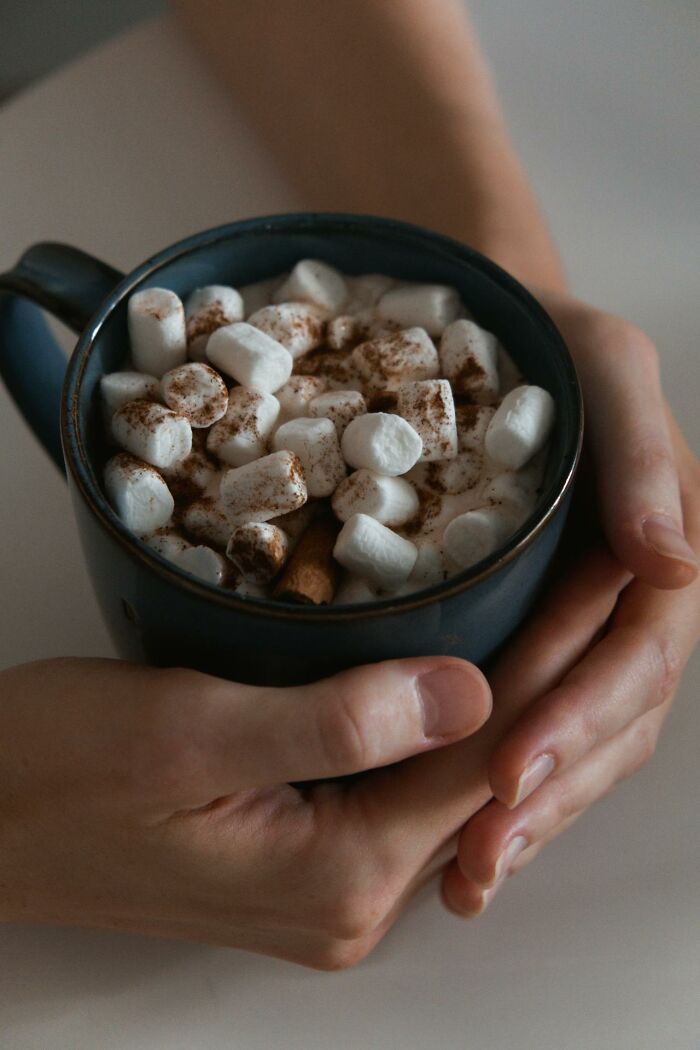 Not so much a cooking tip, but the boy from Modern Family said to Gloria that he adds the tiniest pinch of salt to his hot cocoa, and damn if it isn't delicious.
Not so much a cooking tip, but the boy from Modern Family said to Gloria that he adds the tiniest pinch of salt to his hot cocoa, and damn if it isn't delicious.
While some people limit themselves to learning from books or personal experience only, those with an open mind can find inspiration elsewhere, too; and I don’t just mean shows and movies.
Talking about inspo for making chef d'oeuvres in the kitchen, the mastermind behind the Lecker podcast, Lucy Dearlove, pointed out that you can find it basically everywhere. “I'm very interested in how the way we think about food is affected by everything else going on in the world, so I always keep my eye out for stories that maybe aren't directly connected to food on the surface but there is undoubtedly a link when you take a closer look.
“I also approach food very seasonally and love to use ingredients that are in season locally to where I live, and I always want to consider how what we eat can have an impact on our planet,” she said.
 Season your vegetables - it’s a game changer for sandwiches!
Like I would often slice tomatoes and put them in my sandwich, but I’d never thought to sliced them, add some flaky sea salt, leave them for a few mins and then add to the sandwich, it adds so much for such a simple step!
Similarly, “lubrication” is important with sandwiches and is a game changer!
Something fatty like butter or mayo on your roll, toss your shredded lettuce in a vinaigrette, or even one I’ve tried is to toss it in a little pickle juice or jalapeño juice.
And also texture differences, you don’t want a pile of slop, so you need texture variations.
Turned out that “simple” sandwiches that taste amazing are more complicated than I realised.
Season your vegetables - it’s a game changer for sandwiches!
Like I would often slice tomatoes and put them in my sandwich, but I’d never thought to sliced them, add some flaky sea salt, leave them for a few mins and then add to the sandwich, it adds so much for such a simple step!
Similarly, “lubrication” is important with sandwiches and is a game changer!
Something fatty like butter or mayo on your roll, toss your shredded lettuce in a vinaigrette, or even one I’ve tried is to toss it in a little pickle juice or jalapeño juice.
And also texture differences, you don’t want a pile of slop, so you need texture variations.
Turned out that “simple” sandwiches that taste amazing are more complicated than I realised.
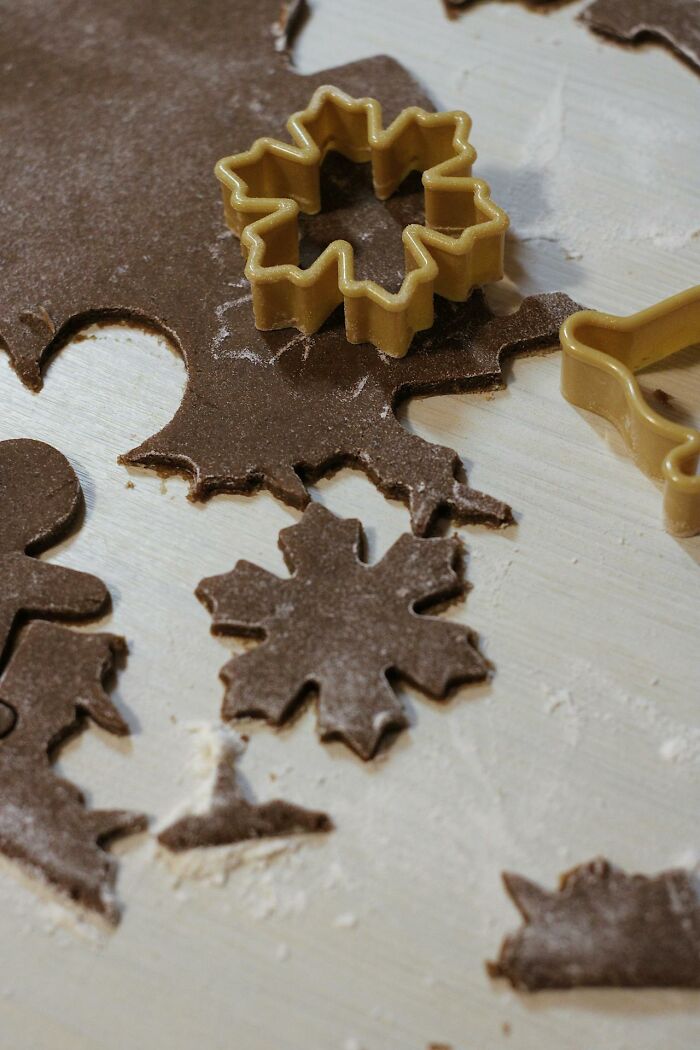 Thanks to Alton Brown, I now roll my sugar cookie and gingerbread man dough out using powdered sugar instead of flour on the counter and rolling pin. It makes a HUGE difference as it keeps the dough from becoming tougher and dryer with each re-roll of the scraps.
Thanks to a show from the 1990s, I now add a little water to my scrambled eggs when beating them instead of using milk as I was taught to use. The program was one where the presenters prepared a dish in the various accepted ways (in this case, with milk, with water, and by breaking the eggs into the pan and scrambling them around as they cooked) and gave it to a large room full of random volunteers who tried each version and rated it. In this case, the water version won in tenderness, fluffiness, and even taste. Turns out that a protein in milk interacts with a component in the eggs to form a bond that makes the eggs tougher. It also prevents the eggs from becoming as fluffy as the water version. Some people rated the pan scramble good, but in general the comments were that they tasted and looked like a hard-fried egg gone wrong
Thanks to a mukbang video (Heungsam’s Family) on YouTube, I learned that making kimchi is not as difficult as the recipe appears. I now make their recipe several times per year and even bought a 1/2 gallon kimchi container that I keep in my fridge at all times.
Thanks to Alton Brown, I now roll my sugar cookie and gingerbread man dough out using powdered sugar instead of flour on the counter and rolling pin. It makes a HUGE difference as it keeps the dough from becoming tougher and dryer with each re-roll of the scraps.
Thanks to a show from the 1990s, I now add a little water to my scrambled eggs when beating them instead of using milk as I was taught to use. The program was one where the presenters prepared a dish in the various accepted ways (in this case, with milk, with water, and by breaking the eggs into the pan and scrambling them around as they cooked) and gave it to a large room full of random volunteers who tried each version and rated it. In this case, the water version won in tenderness, fluffiness, and even taste. Turns out that a protein in milk interacts with a component in the eggs to form a bond that makes the eggs tougher. It also prevents the eggs from becoming as fluffy as the water version. Some people rated the pan scramble good, but in general the comments were that they tasted and looked like a hard-fried egg gone wrong
Thanks to a mukbang video (Heungsam’s Family) on YouTube, I learned that making kimchi is not as difficult as the recipe appears. I now make their recipe several times per year and even bought a 1/2 gallon kimchi container that I keep in my fridge at all times.
According to Lucy, the reason people seem to be so interested in food and food-related content—other than the obvious need for sustenance—lies deeper than the surface level of hunger. “I think a lot of the interest comes from a deep curiosity about who we are, where we come from and how we connect to our wider history. You can travel the world and learn about so many different food traditions and cultures just by cooking in your own kitchen, or watching YouTube or TikTok and that's so exciting,” she told Bored Panda.
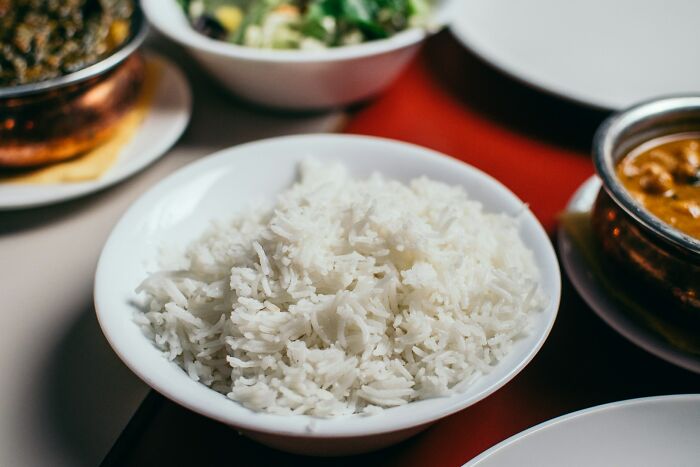 Butter rice from Midnight Diner. Heat rice very hot, add cold butter and a very few drops of soy sauce. Stir gently. Wonderful.
Butter rice from Midnight Diner. Heat rice very hot, add cold butter and a very few drops of soy sauce. Stir gently. Wonderful.
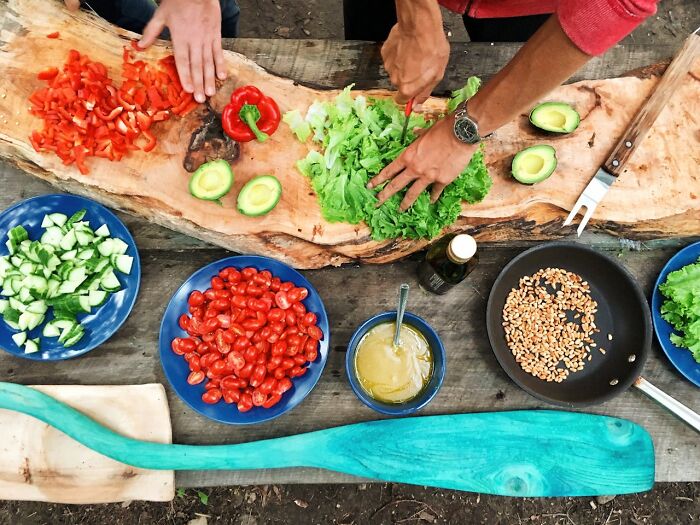 I don’t really watch cooking shows but I have seen segments. One thing I have copied is prep: I get all the ingredients out and measure spices and flour, eggs, and so forth and place them in small bowls. I also absolutely love my scraper, food mover tool and think everyone should have one or two.
I don’t really watch cooking shows but I have seen segments. One thing I have copied is prep: I get all the ingredients out and measure spices and flour, eggs, and so forth and place them in small bowls. I also absolutely love my scraper, food mover tool and think everyone should have one or two.
“I think the pandemic has had a big effect on this too,” the producer of the documentary food podcast continued. “Our lives became very centered around the domestic for an extended period of time and food gave us a connection to the world beyond our homes that we couldn't access during the lockdowns. And this has stayed with us since 2020 and only seems to be growing.”
In Lucy’s opinion, having this access to what different individuals in different countries are cooking and eating has really influenced people in places which haven't traditionally had such a strong interest in food. “In the UK, we haven't always taken food that seriously, but I think in recent years this has really changed thanks to the global wealth of content being made around it,” she suggested.
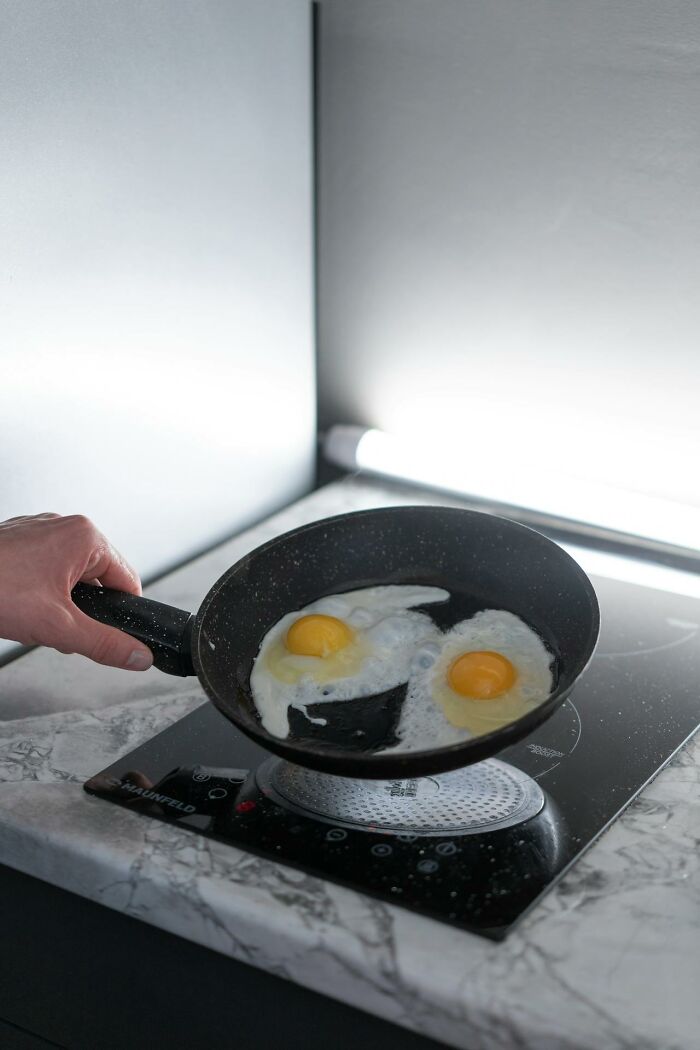 Learned how to fry eggs from Kelis’ Milkshake video. That bit where the chef spoons some grease OVER the eggs. Whaaaaaaat? But it works!
Learned how to fry eggs from Kelis’ Milkshake video. That bit where the chef spoons some grease OVER the eggs. Whaaaaaaat? But it works!
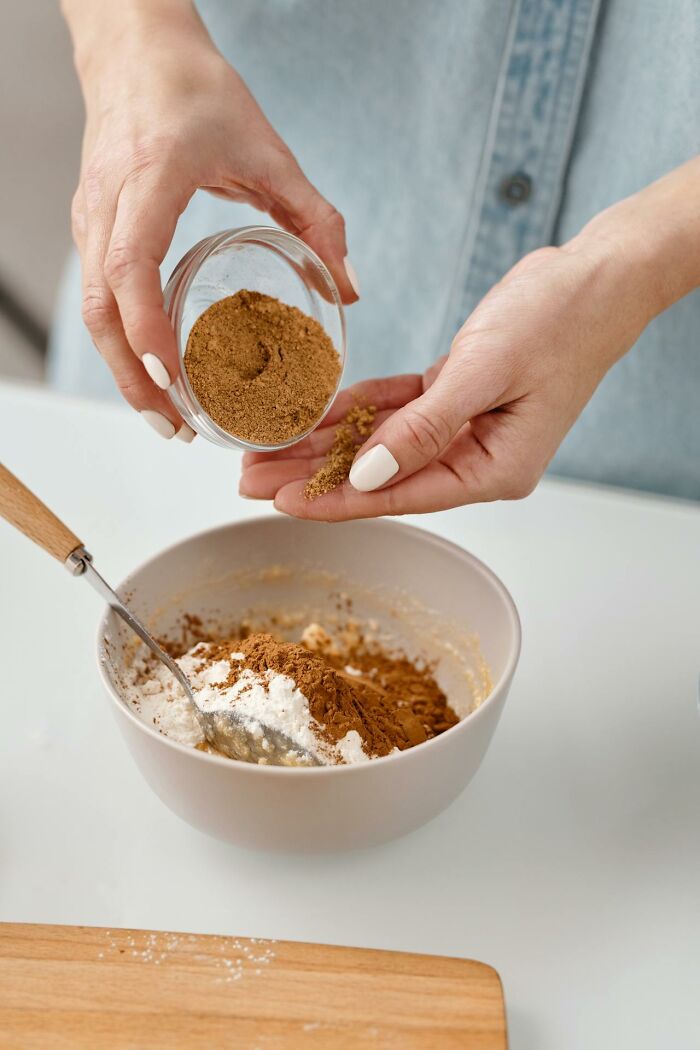 In the speedracer live action movie, the mom says she adds a dash of cinnamon to her pancakes, and I thought that was genious. Now I also do that, lol.
In the speedracer live action movie, the mom says she adds a dash of cinnamon to her pancakes, and I thought that was genious. Now I also do that, lol.
I put cinnamon, nutmeg, brown sugar and vanilla in mine. Used to be a mix spice that also had Chai but can't find it anymore ☹️ I suppose all spice is a good option as well. Name says it spices all
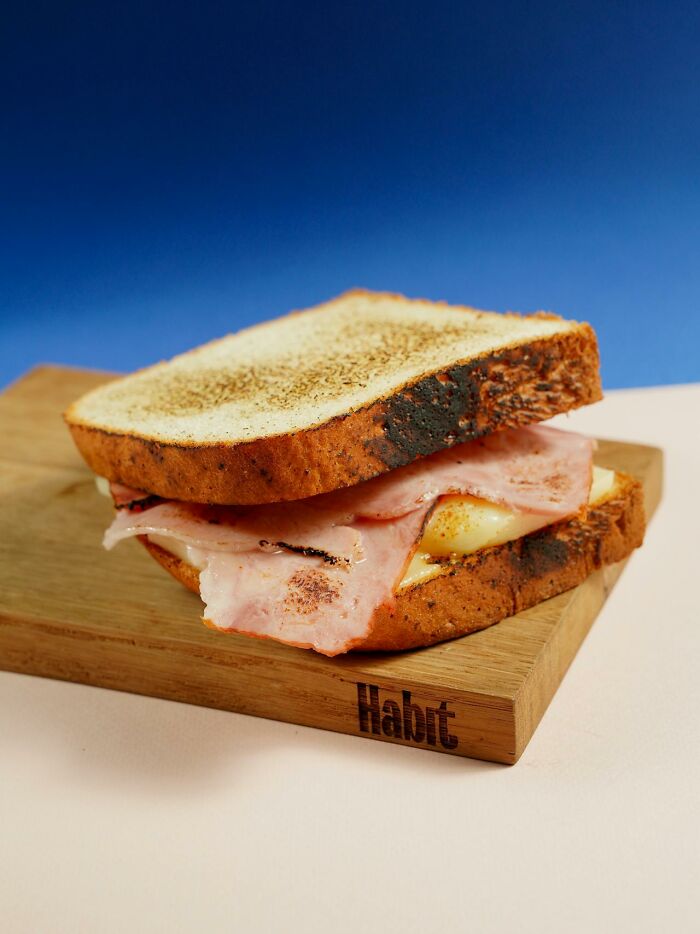 I started sprinkling some dill in my ham and cheese sandwiches after Al Bourland said he did it on an episode of Home Improvement.
I started sprinkling some dill in my ham and cheese sandwiches after Al Bourland said he did it on an episode of Home Improvement.
“Food is where so many things interconnect,” Dearlove emphasized. “Gender, culture, race, class, labor rights, land rights, politics, distribution of wealth – all of these things influence how and what we eat and our collective food history.”
She agreed that not everyone is interested in exploring food beyond it being a source of sustenance—as not everyone is into ballet, or opera, for example—but in her opinion, one can’t deny that both the history and the contemporary reality of our food cultures are inextricably linked with so many of our society's joys; as well as its struggles.
 I was watching the Prime TV show Mr. and Mrs Smith. In one scene, Donald Glover’s character was talking to his mom about making soup, and she said always to make the stock with chicken feet. That weekend, I made a large pot of chicken stock using chicken feet, and boy, does it taste better with the extra collagen.
I was watching the Prime TV show Mr. and Mrs Smith. In one scene, Donald Glover’s character was talking to his mom about making soup, and she said always to make the stock with chicken feet. That weekend, I made a large pot of chicken stock using chicken feet, and boy, does it taste better with the extra collagen.
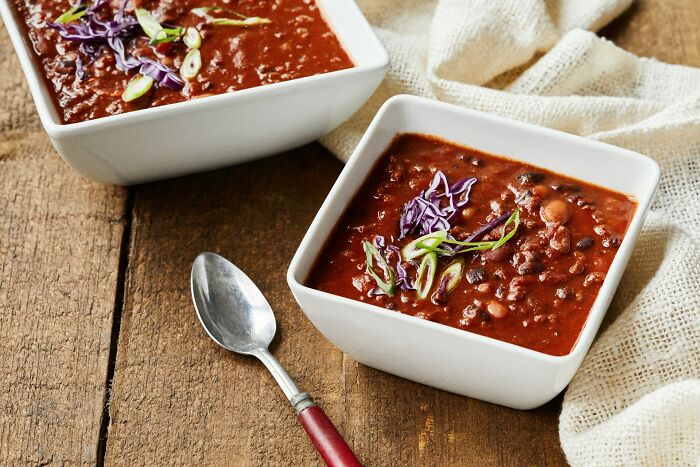 Josh Brolin's character in Labor Day uses coffee in his chili. I don't do it all the time, but adding a bit of it definitely gives it a different flavor profile.
Josh Brolin's character in Labor Day uses coffee in his chili. I don't do it all the time, but adding a bit of it definitely gives it a different flavor profile.
 “Salty like the ocean” Gordon Ramsey.
From one of his tv shows…. He was yelling at a chef that their water for boiling their pasta should “smell salty like the ocean.” I. Never really knew how much to use but this is how I always do it now and it makes a big difference.
Edit for the “well, actually!” Folks - the steam should smell salty like the ocean. Not, the boiling water should taste salty like the ocean. But here we are. 🤷🏻♂️.
“Salty like the ocean” Gordon Ramsey.
From one of his tv shows…. He was yelling at a chef that their water for boiling their pasta should “smell salty like the ocean.” I. Never really knew how much to use but this is how I always do it now and it makes a big difference.
Edit for the “well, actually!” Folks - the steam should smell salty like the ocean. Not, the boiling water should taste salty like the ocean. But here we are. 🤷🏻♂️.
Together with the mastermind behind Lecker, we discussed the visual part of all sorts of wonders of gastronomy, too, and while she does not deny that beauty is important, in her eyes, food should look delicious rather than photogenic.
“I think presentation and styling on the plate is an art, and I love seeing a beautiful panda bento on my feed as much as the next person, but I would rather see a delicious looking bowl of something that isn't stereotypically instagrammable, like a rustic soup or a pulse-based dish, than a rainbow frosted cake or a smoothie bowl, because personally I wouldn't want to eat those things as much.
“We eat with our eyes first, sure, but we should be careful of getting too caught up in the way food looks rather than the way it tastes. I want to see messy kitchen pics behind the scenes as well as beautiful tablescapes,” she shared.
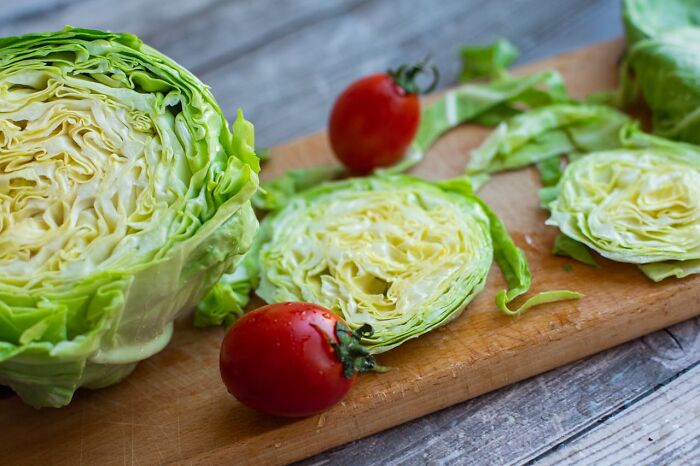 Alan Alda in Sweet Liberty. You can core a head of iceberg lettuce by slamming the core onto the counter/cutting board.
Alan Alda in Sweet Liberty. You can core a head of iceberg lettuce by slamming the core onto the counter/cutting board.
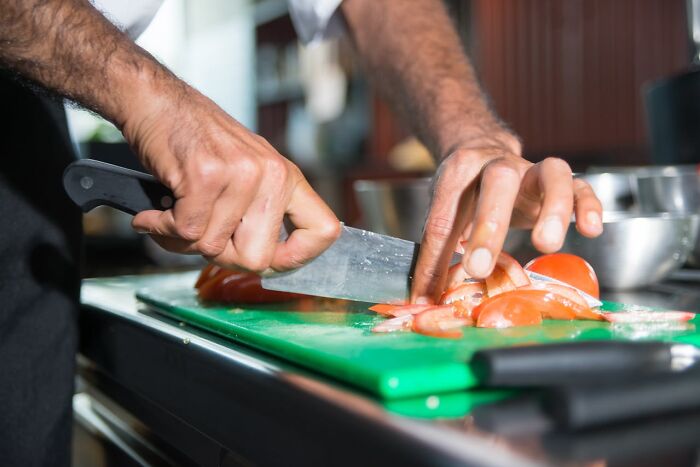 Learned the "choke grip" for better knife control by watching Food Wars. Which is kinda crazy, considering I watched it after being a professional baker for years...
Learned the "choke grip" for better knife control by watching Food Wars. Which is kinda crazy, considering I watched it after being a professional baker for years...
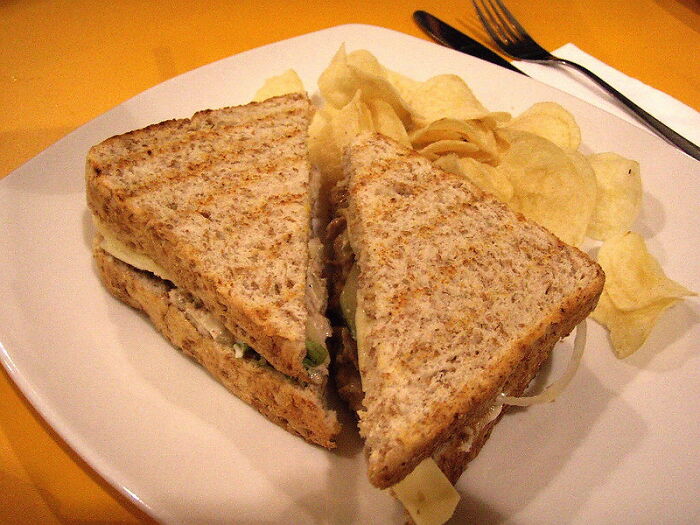 Tina Fey in 30 Rock taught me, "Don't forget to put chips on a sandwich!" Lifechanging.
Tina Fey in 30 Rock taught me, "Don't forget to put chips on a sandwich!" Lifechanging.
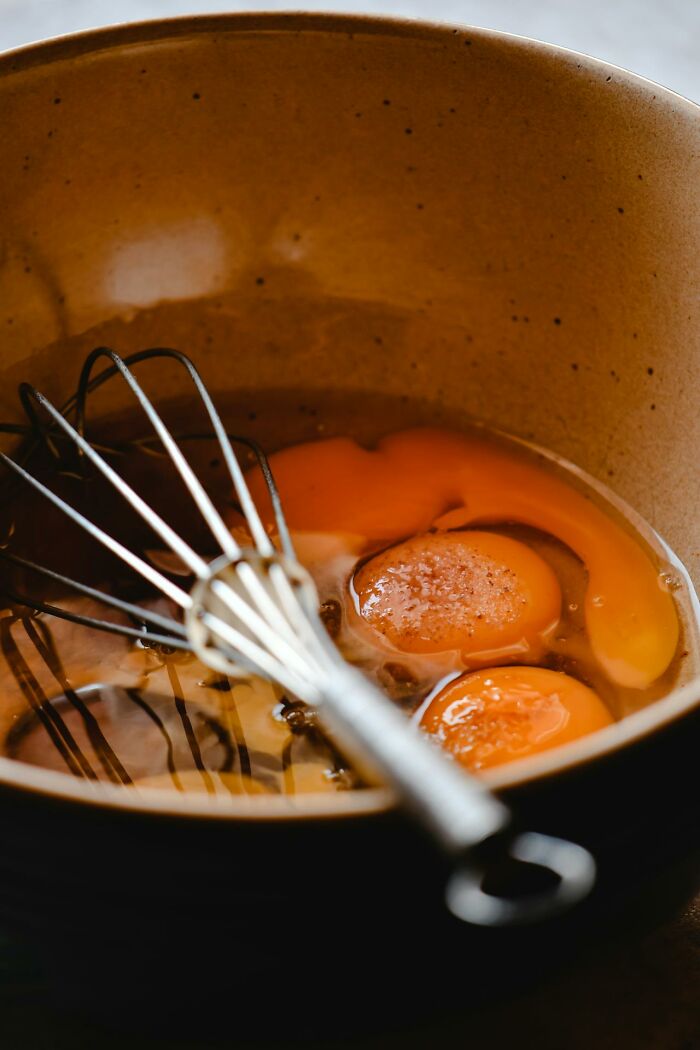 I learned the water instead of milk tip for omelets from LL Cool J in Deep Blue Sea and have been doing it ever since.
I learned the water instead of milk tip for omelets from LL Cool J in Deep Blue Sea and have been doing it ever since.
For puffy omelets i crack 3 eggs in a bowl, add about 1/2 to 2/3rds of an eggshell of COLD water, then whisk with a fork till well blended and a bit foamy. Then I heat the pan with a lid on and a bot of butter. When the butter melts I pour in the egg mixture re-cover, wait a few seconds till it gets a bit of "skin" and starts puffing up. Then add cheese, (cooked) meat, veggies making sure not to add too much. Cover back up and wait till it puffsall the way up and has a light golden outer layer, fold cover for a bit more, flip and cover one more time then serve
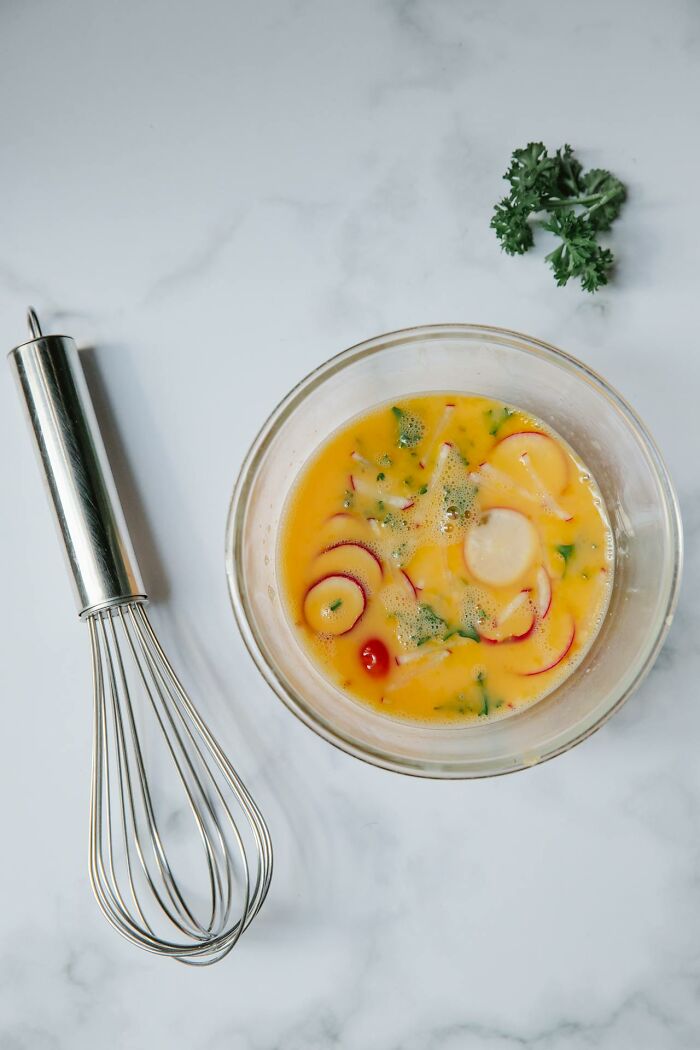 Paprika in omelettes from the movie The Hundred Foot Journey (although now that I'm rewatching I think it was chili pepper 🤣).
Paprika in omelettes from the movie The Hundred Foot Journey (although now that I'm rewatching I think it was chili pepper 🤣).
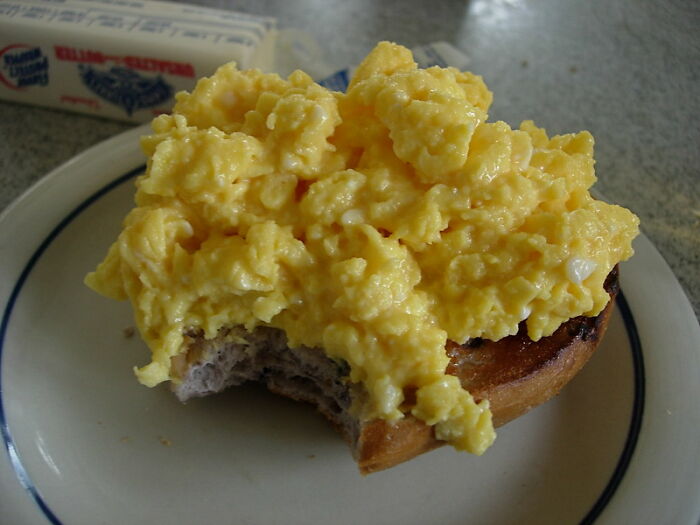 I learned to add sour cream to my prescrambled eggs from Ralphie Cifaretto’s character on a very special episode of The Sopranos. The eggs come out light and fluffy every time.
I learned to add sour cream to my prescrambled eggs from Ralphie Cifaretto’s character on a very special episode of The Sopranos. The eggs come out light and fluffy every time.
 Thanks to Reba, I make my grilled cheese by using mayo on the outside instead of butter. A huge game changer.
Thanks to Reba, I make my grilled cheese by using mayo on the outside instead of butter. A huge game changer.
And from it's always sunny in Philadelphia, you have to finish off the grilled cheese on the radiator.
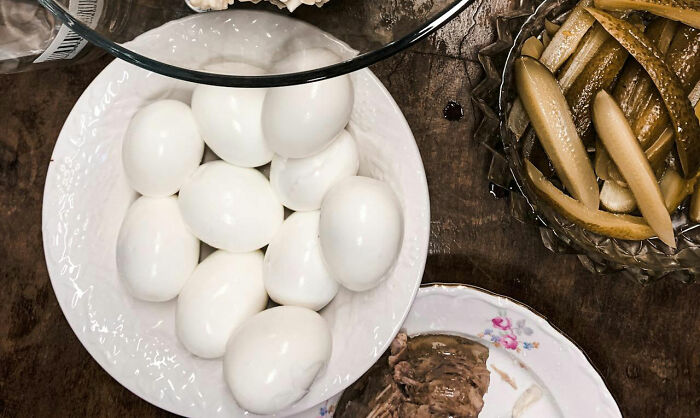 Not really cooking but I started putting mustard on my hard boiled eggs after I saw Nancy Botwin do it on Weeds. Game changer.
Not really cooking but I started putting mustard on my hard boiled eggs after I saw Nancy Botwin do it on Weeds. Game changer.
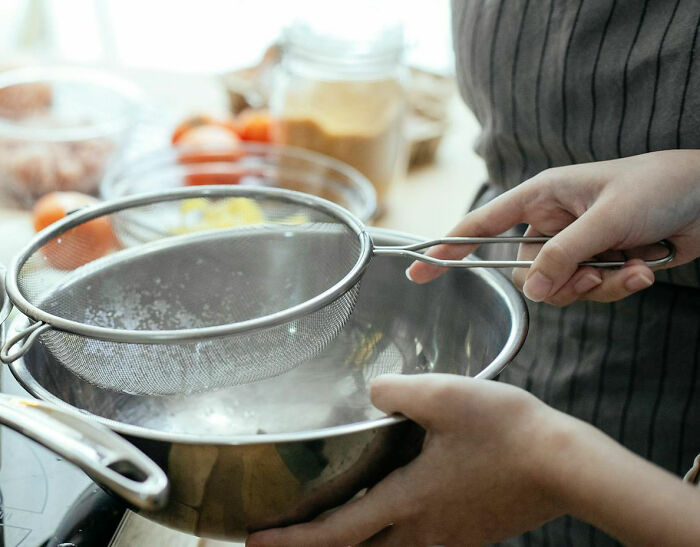 After watching an episode of The Bear, I now whisk my eggs through a mesh strainer. My omelettes and scrambled eggs are now a perfect, uniform yellow, with no white bits anywhere.
After watching an episode of The Bear, I now whisk my eggs through a mesh strainer. My omelettes and scrambled eggs are now a perfect, uniform yellow, with no white bits anywhere.
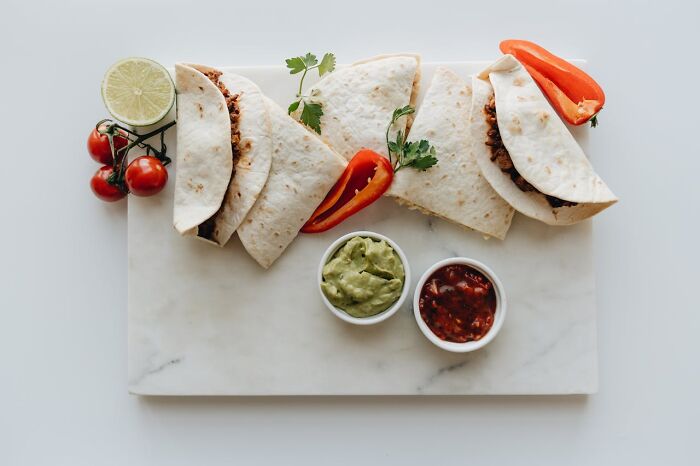 Cooking fajitas and bacon (not together) in the oven on cookie sheets.
Life changing.
Cooking fajitas and bacon (not together) in the oven on cookie sheets.
Life changing.
Fried bread olive oil and garlic - Julia and Julia.
yes. Olive oil may be more expensive but it's always worth it for almost everything, including fried bread. I do a fried bread with cheese, herbs and garlic with olive oil for "pasta night" and it always goes down a treat. x3
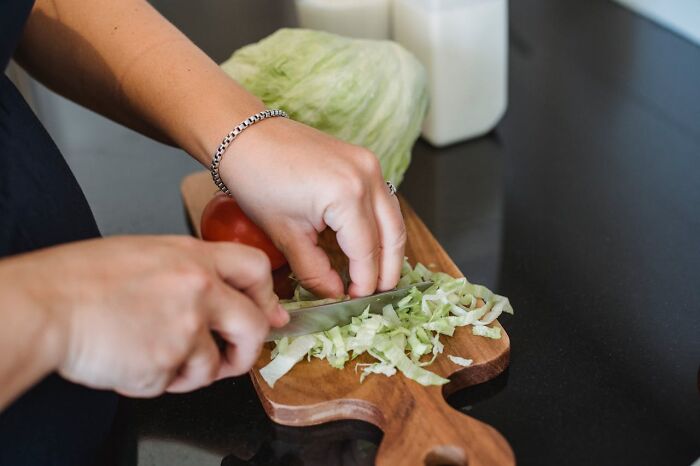 I learned almost everything I know from the Food Network, both good and bad. I learned how to use a knife from chefs such as Bobby Flay. I learned how not to use a knife from not-really-chefs like Trisha Yearwood.
I learned almost everything I know from the Food Network, both good and bad. I learned how to use a knife from chefs such as Bobby Flay. I learned how not to use a knife from not-really-chefs like Trisha Yearwood.
Most of what I learned from Food Network was how awful some people are at cooking from Worst Cooks. Raspberry tuna surprise anyone?
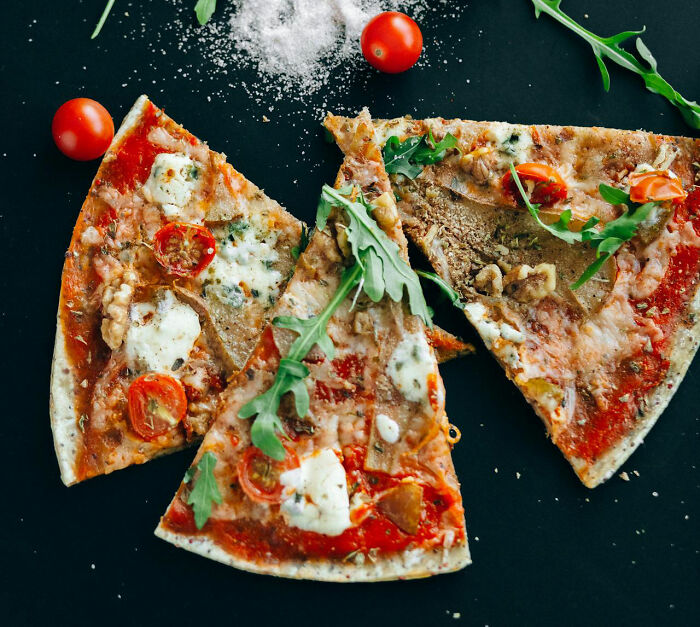 Pizza eggs from the show weeds. Chop up leftover pizza slices and just toss them up in a pan with some eggs.
Pizza eggs from the show weeds. Chop up leftover pizza slices and just toss them up in a pan with some eggs.
I didn't know about Toad In A Hole ( that English breakfast where you cook an egg in a hole cut out of a slice of bread) until I watched V for Vendetta. It's my favorite breakfast now.
Watched an episode of master chef once where a contestant said that in order to get a perfectly poached egg, you have to sing amazing grace twice while it’s in the water. I always think of this technique when I do it lol.
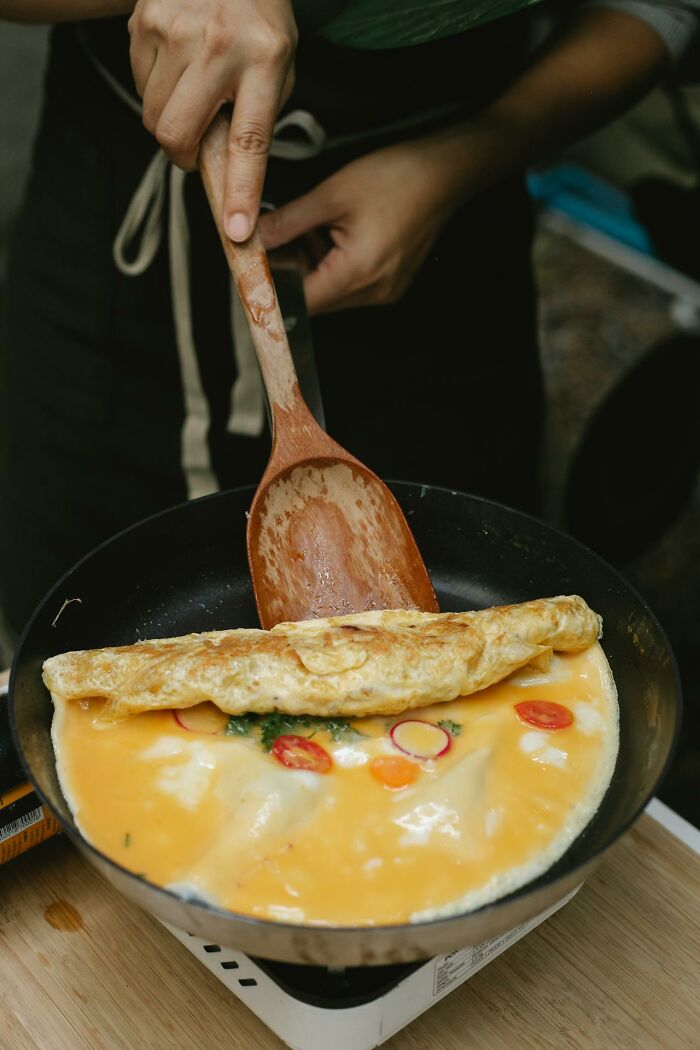 Watching Paul Giamatti cook an omelette on Billions. Really was a breakthrough for me.
Watching Paul Giamatti cook an omelette on Billions. Really was a breakthrough for me.
I learned to make tanmen from the Netflix show Midnight Diner. I'm sure I'm screwing it up, but it's really good the way I make it.
•
Not Quite Done Yet!
Discover Your Competitive Edge
Subscribe Premium to Compare Your Stats with Others
More Premium features:
How did you score compared to others?
Your general stats:
| User | Result | Reward |
|---|---|---|
  | / 10 | |
  | / 10 | |

Glad to see no one posted that they learned stuff from Hannibal Lecter from Silence of the Lambs. :)
Well, we did learn to serve fava beans with chianti.
Load More Replies...It was a youtube video instead of movie or tv show, but a big one for me was for when doing something like cooking pork chops. Heat the dry skillet until a few drops of water will form into little balls and dance around in the skillet instead of sitting there and sizzling. When it does that add your oil, leave the burner on high, and add the meat. Initially it will stick. Leave it alone. When it's sufficiently browned it will turn loose and you can flip it to brown the other side.
That‘s actually something many people do wrong. They temper to mich with the coocking process. They toss and turn their food too often and then wonder why it‘s dry. Or they don‘t wonder, because they don‘t know it could be better if they just let the food alone in the pan for a few minutes. People are too afraid that it will burn or something
Load More Replies...These are not even hacks but the most basic rules of making food. This thread was lame.
Glad to see no one posted that they learned stuff from Hannibal Lecter from Silence of the Lambs. :)
Well, we did learn to serve fava beans with chianti.
Load More Replies...It was a youtube video instead of movie or tv show, but a big one for me was for when doing something like cooking pork chops. Heat the dry skillet until a few drops of water will form into little balls and dance around in the skillet instead of sitting there and sizzling. When it does that add your oil, leave the burner on high, and add the meat. Initially it will stick. Leave it alone. When it's sufficiently browned it will turn loose and you can flip it to brown the other side.
That‘s actually something many people do wrong. They temper to mich with the coocking process. They toss and turn their food too often and then wonder why it‘s dry. Or they don‘t wonder, because they don‘t know it could be better if they just let the food alone in the pan for a few minutes. People are too afraid that it will burn or something
Load More Replies...These are not even hacks but the most basic rules of making food. This thread was lame.

 Dark Mode
Dark Mode 

 No fees, cancel anytime
No fees, cancel anytime 






